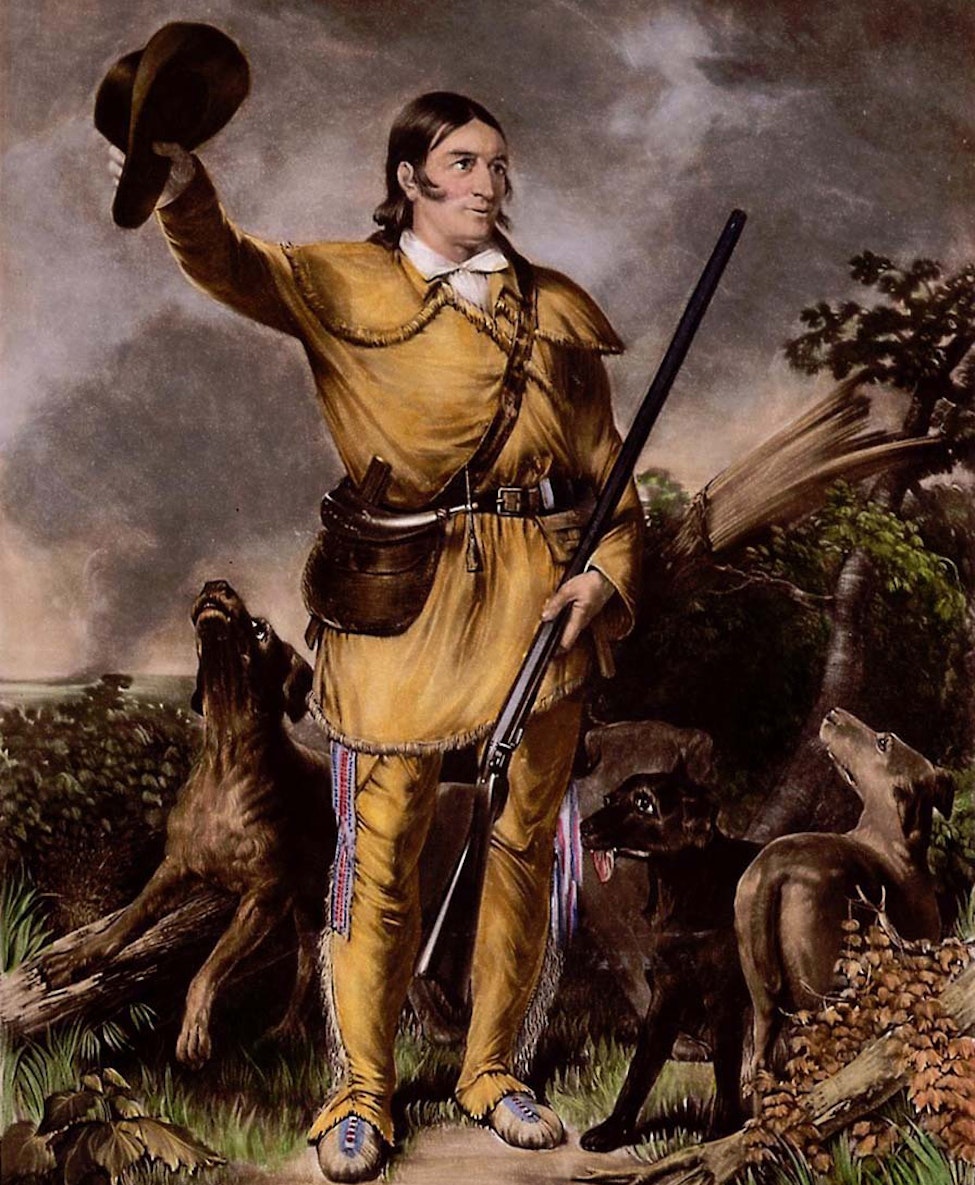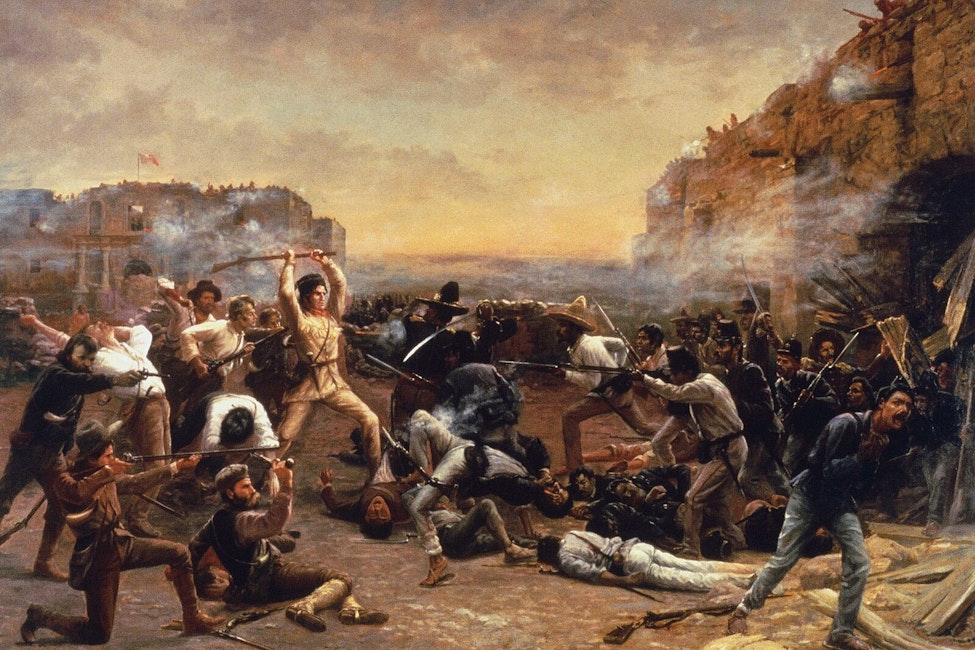“If Congress can do whatever in their discretion can be done by money, and will promote the General Welfare, the Government is no longer a limited one, possessing enumerated powers, but an indefinite one, subject to particular exceptions.” —James Madison (1792)
In May, the House passed President Donald Trump’s proposed One Big Beautiful Bill Act by one vote, with the support of notable Republicans.
The OBBBA includes the largest tax cut in history combined with unprecedented spending cuts in order to supercharge the economy for higher wages, while ensuring only citizens receive Medicaid. It also rebuilds our military and protects our borders.
By some accounts, depending on how the Senate reconstitutes it, the 1,000-plus-page bill will add $2.6 trillion to the federal government’s $36.2 trillion debt over the next 10 years, and the perennial increase in our national debt this year resulted in a Moody’s Ratings downgrade of AAA to AA1, meaning the influential rating service believes the accumulated U.S. debt will be a challenge to sustain.
This week, the Senate responded with a $3.8 trillion budget reconciliation package with contentious Republican objections to raising the debt ceiling by $4-5 trillion, and other issues regarding Medicaid, Medicare, and SALT.
Senate Majority Leader John Thune (R-SD) and Finance Committee Chair Mike Crapo (R-ID) will now work with House Speaker Mike Johnson (R-LA) to determine how closely the Senate can stay to the narrowly passed House version.
For the record, I support Trump’s $7 trillion “big beautiful” behemoth, with one major exception: SecDef Pete Hegseth’s bloated $850 billion budget. The greatest threat to building and maintaining a robust military defense is waste, and anyone who has spent any time around DoD’s contracting and acquisitions programs knows this to be true. Given the existential threat posed by the ChiComs and Russia, Republicans and Democrats are subjecting the nation to great risk by allowing waste to wither our military-industrial might.
The obstacles faced by Elon Musk and his DOGE Team proved that cutting government spending is virtually impossible, and the most difficult of those cuts is with DoD because every dime is tied to some congressional member’s district or state. In short: Follow the money.
Amid the coming cantankerous debate compromises, it is worth noting that strident disagreements over government spending are as old as our nation. A timeless congressional oration about spending was delivered by a fellow whose family lived next to my East Tennessee Revolutionary War ancestors, and they fought side by side at the pivotal Battle of Kings Mountain.
This fellow was born in his family’s log cabin in August 1786, and he would become a noted frontiersman, a militia colonel, an American politician, and a national folk hero. He was elected first to the Tennessee legislature in 1821, then to Congress in 1827. He died in 1836 during the Texas Revolution at the Battle of the Alamo.
His name, as you might have guessed, was David Crockett, or “Davy” to his friends.
He has been immortalized for his battles with the Red Stick Creek Indians under fellow Tennessean General Andrew Jackson, and his last stand at the Alamo with fellow Patriots James Bowie from Kentucky and William Travis from South Carolina. Crockett battled the Creek side by side with fellow Tennessean Sam Houston, but both men were friends to the Cherokee clans, which were composed mostly of highly civilized native peoples living in the border regions between Tennessee and North Carolina.
But Davy is less known for the three non-consecutive terms he served in Congress between 1827 and 1835 during the presidency of his former commander, Andrew Jackson. Davy’s first election to Congress coincides with the election of his old friend Sam Houston as governor of Tennessee, who would later become governor of Texas (and the only American in history to serve as governor of two states).
It was his opposition to Jackson’s policies that led to Davy’s defeat in his reelection bid in 1831 and his narrow loss in 1835.
Davy had little formal education, but he exuded a commanding presence and was feared, if not loathed, by his more refined congressional colleagues for his backwoods rhetoric.
In one of his legendary orations, Crockett proclaimed:
Mr. Speaker … the gentleman from Massachusetts [Mr. Everett] talks of summing up the merits of the question, but I’ll sum up my own. In one word, I’m a screamer, and have got the roughest racking horse, the prettiest sister, the surest rifle and the ugliest dog in the district. I’m a leetle the savagest crittur you ever did see. My father can whip any man in Kentucky, and I can lick my father. I can out-speak any man on this floor, and give him two hours start. I can run faster, dive deeper, stay longer under, and come out drier than any chap this side the big Swamp. I can outlook a panther and outstare a flash of lightning, tote a steamboat on my back and play at rough and tumble with a lion, and an occasional kick from a zebra.
Crockett continued:
I can take the rag off — frighten the old folks — astonish the natives — and beat the Dutch all to smash, make nothing of sleeping under a blanket of snow and don’t mind being frozen more than a rotten apple. I can walk like an ox, run like a fox, swim like an eel, yell like an Indian, fight like a devil, spout like an earthquake, make love like a mad bull, and swallow a Mexican whole without choking if you butter his head and pin his ears back.
What I wouldn’t give to hear a lot more of that in open debate on the floors of Congress today!

However, it was Crockett’s stalwart opposition to unconstitutional spending that is most relevant today, given the current congressional penchant for such spending, which now exceeds trillions of dollars.
According to the Register of Debates for the House of Representatives, 20th Congress, 1st Session, on 2 April 1828, Crockett stood to challenge the constitutionality of one of the earliest welfare spending bills, a benevolence distribution to the family of a military officer after his death.
While the exact text of his speech was not transcribed (that was not the practice in those years), a close captioning of his oration was compiled and printed in an 1867 Harper’s Magazine, in an article entitled “Not Yours to Give” by Edward Ellis.
According to Ellis, Crockett’s objection to the expenditure was as follows:
Mr. Speaker; I have as much respect for the memory of the deceased, and as much sympathy for the sufferings of the living, if suffering there be, as any man in this House, but we must not permit our respect for the dead or our sympathy for a part of the living to lead us into an act of injustice to the balance of the living. I will not go into an argument to prove that Congress has not the power to appropriate this money as an act of charity. Every member upon this floor knows it. We have the right, as individuals, to give away as much of our own money as we please in charity; but as members of Congress we have no right so to appropriate a dollar of the public money. Some eloquent appeals have been made to us upon the ground that it is a debt due the deceased. Mr. Speaker, the deceased lived long after the close of the war; he was in office to the day of his death, and I have never heard that the government was in arrears to him.
Every man in this House knows it is not a debt. We cannot, without the grossest corruption, appropriate this money as the payment of a debt. We have not the semblance of authority to appropriate it as charity. Mr. Speaker, I have said we have the right to give as much money of our own as we please. I am the poorest man on this floor. I cannot vote for this bill, but I will give one week’s pay to the object, and if every member of Congress will do the same, it will amount to more than the bill asks.
Crockett concluded:
The people have delegated to Congress, by the Constitution, the power to do certain things. To do these, it is authorized to collect and pay moneys, and for nothing else. Everything beyond this is usurpation, and a violation of the Constitution.
Ellis recounts that Crockett was later asked by a friend why he had opposed the appropriation, and he replied:
Several years ago I was one evening standing on the steps of the Capitol with some other members of Congress, when our attention was attracted by a great light over in Georgetown. It was evidently a large fire. We jumped into a hack and drove over as fast as we could. In spite of all that could be done, many houses were burned and many families made houseless, and, besides, some of them had lost all but the clothes they had on. The weather was very cold, and when I saw so many women and children suffering, I felt that something ought to be done for them. The next morning a bill was introduced appropriating $20,000 for their relief. We put aside all other business and rushed it through as soon as it could be done.
Crockett explained:
The next summer, when it began to be time to think about election, I concluded I would take a scout around among the boys of my district. I had no opposition there, but, as the election was some time off, I did not know what might turn up. When riding one day in a part of my district in which I was more of a stranger than any other, I saw a man in a field plowing and coming toward the road. I gauged my gait so that we should meet as he came to the fence. As he came up, I spoke to the man. He replied politely, but, as I thought, rather coldly.
Crockett recalled: “I began: ‘Well, friend, I am one of those unfortunate beings called candidates.’”
His constituent interrupted: “Yes I know you; you are Colonel Crockett. I have seen you once before and voted for you the last time you were elected. I suppose you are out electioneering now, but you had better not waste your time or mine, I shall not vote for you again.”
Crockett replied: “This was a sockdolager… I begged him to tell me what was the matter.”
The farmer said:
Well, Colonel, it is hardly worth-while to waste time or words upon it. I do not see how it can be mended, but you gave a vote last winter which shows that either you have not capacity to understand the Constitution, or that you are wanting in the honesty and firmness to be guided by it. In either case you are not the man to represent me. But I beg your pardon for expressing it in that way. I did not intend to avail myself of the privilege of the constituent to speak plainly to a candidate for the purpose of insulting or wounding you. I intend by it only to say that your understanding of the Constitution is very different from mine; and I will say to you what, but for my rudeness, I should not have said, that I believe you to be honest. But an understanding of the Constitution different from mine I cannot overlook, because the Constitution, to be worth anything, must be held sacred, and rigidly observed in all its provisions. The man who wields power and misinterprets it is the more dangerous the more honest he is.
Crockett responded:
Well, my friend; I may as well own up. You have got me there. But certainly nobody will complain that a great and rich country like ours should give the insignificant sum of $20,000 to relieve its suffering women and children, particularly with a full and overflowing Treasury, and I am sure, if you had been there, you would have done just as I did.
But the farmer fired back:
It is not the amount, Colonel, that I complain of; it is the principle. In the first place, the government ought to have in the Treasury no more than enough for its legitimate purposes. But that has nothing with the question. The power of collecting and disbursing money at pleasure is the most dangerous power that can be entrusted to man. … So you see, Colonel, you have violated the Constitution in what I consider a vital point. It is a precedent fraught with danger to the country, for when Congress once begins to stretch its power beyond the limits of the Constitution, there is no limit to it, and no security for the people.
Thus, Crockett explained his opposition to supporting the widow of that distinguished military officer: “Now, sir, you know why I made that speech yesterday.”
Today, the number of Senate and House incumbents who truly dare to honor their oaths “to support and defend” the Constitution as Davy did is on the rise, but their ranks are still thin.
In Andrew Jackson’s second term, Davy’s outspoken opposition to Jackson’s Indian Removal Act in defiance of the Supreme Court — when Jackson forcibly removed the peaceful Cherokee tribes and marched them out of Tennessee, North Carolina, and Georgia along the infamous “Trail of Tears” — resulted in Davy’s narrow reelection defeat in 1835. But he declared: “I bark at no man’s bid. I will never come and go, and fetch and carry, at the whistle of the great man in the White House no matter who he is.”
That defeat prompted his departure for Texas and the Alamo.

We need more Republican men and women in Congress today willing to stand up, as Davy Crockett did, against unconstitutional spending and the resulting pile of national debt.
Fellow Patriots, The Patriot Post is donor-supported to keep advertisers and special interest groups out of our editorial decisions. Please support that mission to ensure our timeless message of Liberty reaches an ever-wider audience. Your gift to the 2025 Independence Day Campaign is put directly toward our daily operations budget. Thank you for helping us keep the fires of Liberty burning bright in the hearts and minds of millions of Patriots nationwide.
Semper Vigilans Fortis Paratus et Fidelis
Pro Deo et Libertate — 1776
Follow Mark Alexander on X/Twitter.
Please join us in daily prayer for our Patriots in uniform — Soldiers, Sailors, Airmen, Marines, and Coast Guardsmen — standing in harm’s way in defense of American Liberty, and for Veterans, First Responders, and their families. Please lift up your Patriot team and our mission to support and defend our Republic’s Founding Principle of Liberty, in order to ignite the fires of freedom in the hearts and minds of our countrymen.
Thank you for supporting our nation’s premier journal of American Liberty.
















